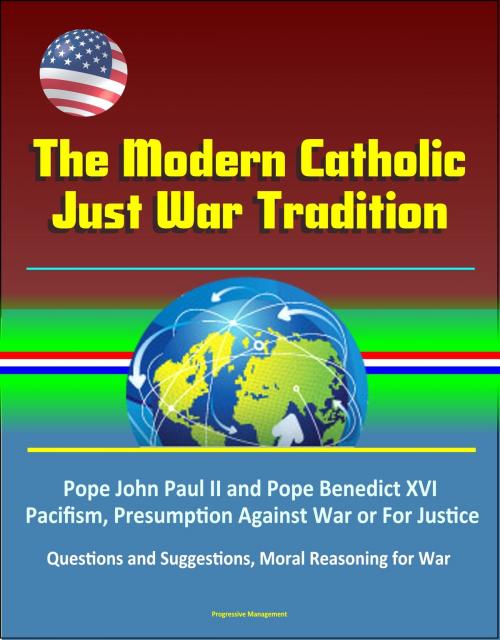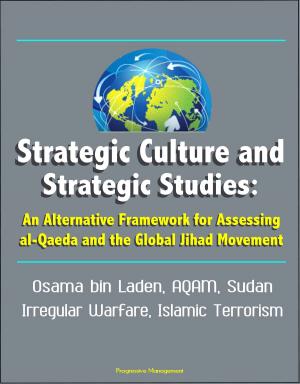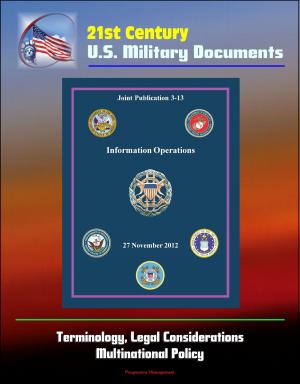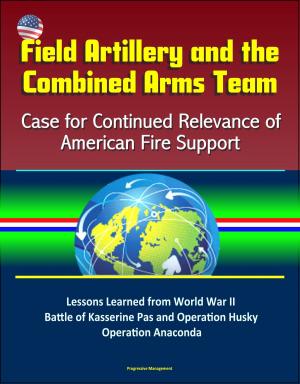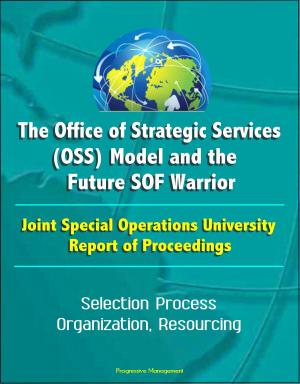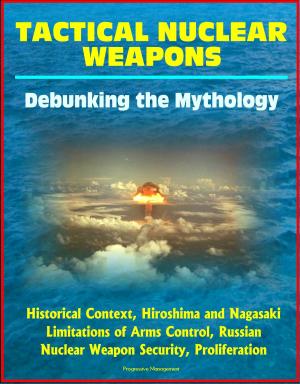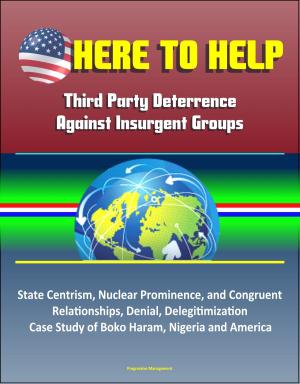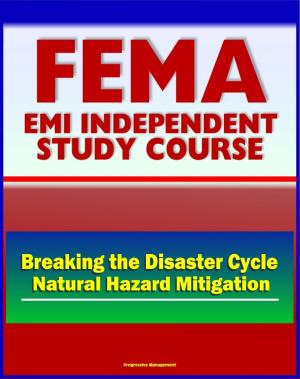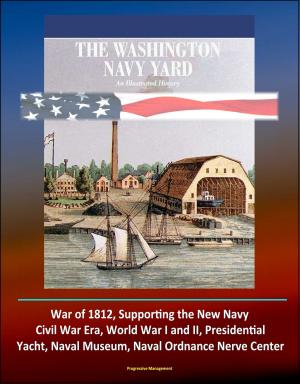The Modern Catholic Just War Tradition: Pope John Paul II and Pope Benedict XVI, Pacifism, Presumption Against War or For Justice, Questions and Suggestions, Moral Reasoning for War
Nonfiction, History, Military, Strategy, Religion & Spirituality, Christianity, Denominations, Catholic, Catholicism| Author: | Progressive Management | ISBN: | 9781370440870 |
| Publisher: | Progressive Management | Publication: | August 29, 2016 |
| Imprint: | Smashwords Edition | Language: | English |
| Author: | Progressive Management |
| ISBN: | 9781370440870 |
| Publisher: | Progressive Management |
| Publication: | August 29, 2016 |
| Imprint: | Smashwords Edition |
| Language: | English |
Professionally converted for accurate flowing-text e-book format reproduction, this unique book examines the role of the modern Catholic Church "just war" tradition and modern military strategy.
Warfare in the modern era is especially destructive and has the potential to be worse in the years to come, which encouraged Catholic writers and thinkers to ask questions about how to apply the Just War tradition in the modern age.
During the Twentieth Century the world endured two horribly destructive wars in Europe, which cost the lives of millions and arguably broke the backs of the European powers. The Pacific theater of war was brought to conclusion by the employment of two nuclear bombs on two separate Japanese cities and ushered in the nuclear age and the Cold War. While superpowers avoided a direct peer-on-peer war, the Cold War manifested itself in smaller conflicts throughout Asia and Central-America and cultivated fear and suspicion among the world population brought about by the arms race.
Once the Cold war was over, the proliferation of weapons and the problem of terrorism was prevalent. These conditions, which were exacerbated by high profile terrorist attacks, notably, the September 11, 2001 attacks on the twin towers, inspired a variety of different interpretations of the proper direction of the Just War tradition, because the circumstances revealed lethal types of warfare not present during the original formulation of the tradition. Three prominent points of view are at work-in modern Catholic thought.-They-are-not the result of the September 11 attacks, but the events of modern warfare provide a useful context for the necessity of developing a deeper understanding of the Just War tradition. One prevailing idea is the notion of pacifism . Another can be referred to as the 'presumption against war', which is not quite pacifist, but has a powerful disposition against the use of violence. A third idea can be referred to as the 'presumption for justice'. which does not relish the use of force; however, it asserts the concept that sometimes war is necessary in order to protect the common good. War is horrible and destructive and it is important to understand its moral context in order to develop clarity for decision making regarding war.
Professionally converted for accurate flowing-text e-book format reproduction, this unique book examines the role of the modern Catholic Church "just war" tradition and modern military strategy.
Warfare in the modern era is especially destructive and has the potential to be worse in the years to come, which encouraged Catholic writers and thinkers to ask questions about how to apply the Just War tradition in the modern age.
During the Twentieth Century the world endured two horribly destructive wars in Europe, which cost the lives of millions and arguably broke the backs of the European powers. The Pacific theater of war was brought to conclusion by the employment of two nuclear bombs on two separate Japanese cities and ushered in the nuclear age and the Cold War. While superpowers avoided a direct peer-on-peer war, the Cold War manifested itself in smaller conflicts throughout Asia and Central-America and cultivated fear and suspicion among the world population brought about by the arms race.
Once the Cold war was over, the proliferation of weapons and the problem of terrorism was prevalent. These conditions, which were exacerbated by high profile terrorist attacks, notably, the September 11, 2001 attacks on the twin towers, inspired a variety of different interpretations of the proper direction of the Just War tradition, because the circumstances revealed lethal types of warfare not present during the original formulation of the tradition. Three prominent points of view are at work-in modern Catholic thought.-They-are-not the result of the September 11 attacks, but the events of modern warfare provide a useful context for the necessity of developing a deeper understanding of the Just War tradition. One prevailing idea is the notion of pacifism . Another can be referred to as the 'presumption against war', which is not quite pacifist, but has a powerful disposition against the use of violence. A third idea can be referred to as the 'presumption for justice'. which does not relish the use of force; however, it asserts the concept that sometimes war is necessary in order to protect the common good. War is horrible and destructive and it is important to understand its moral context in order to develop clarity for decision making regarding war.
